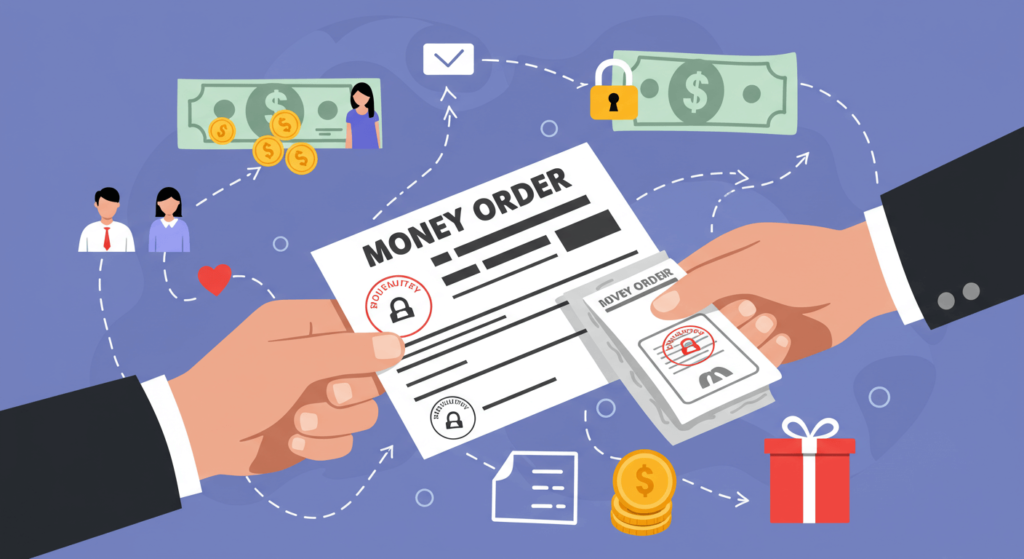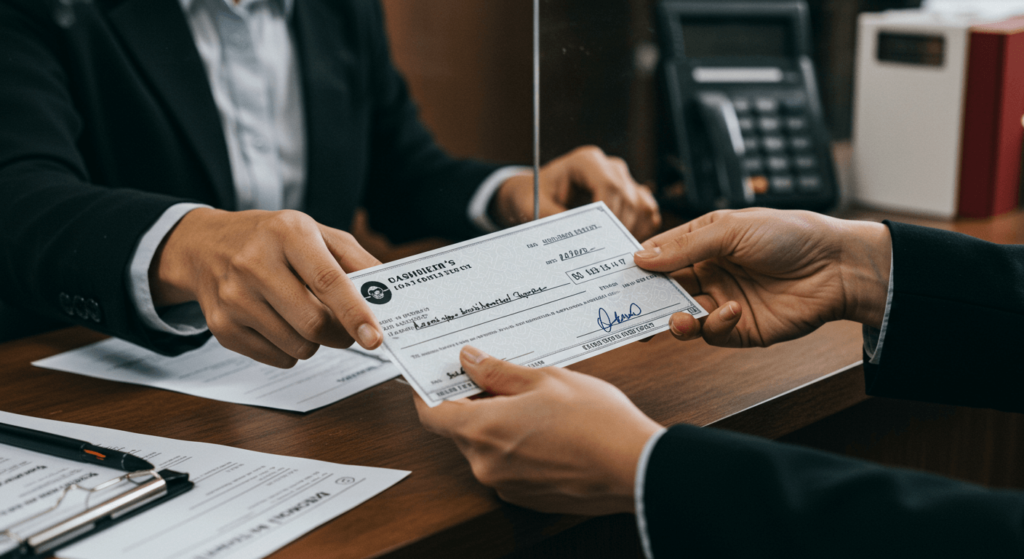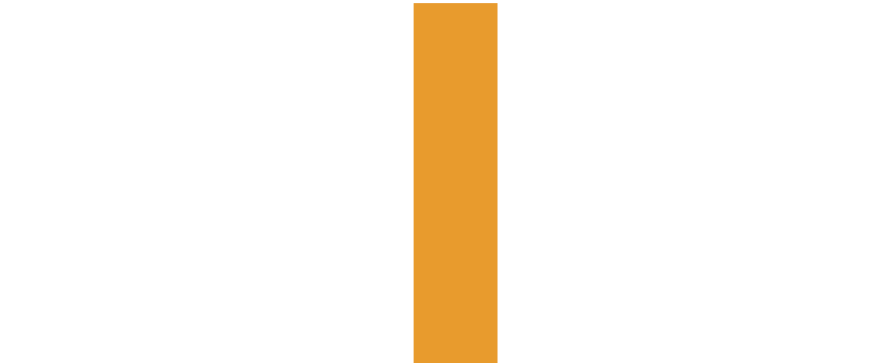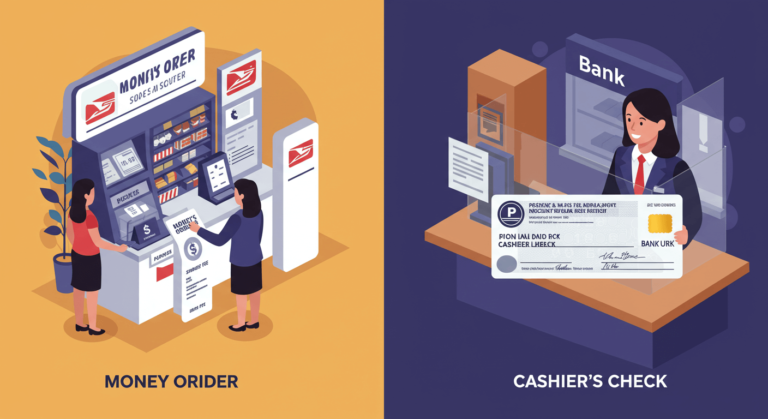When you need to make a secure payment, using cash or a personal check is not always the best option. In these cases, two common alternatives are money orders and cashier checks.
At first glance, they might seem similar. Both are paper forms of payment that offer security. But there are important differences in how they work, where you can get them, how much they cost, and when to use them.
In this guide, we’ll take a close look at money orders vs cashier checks, how they compare, and which option may be best for your needs.
What Is a Money Order?

A money order is a paper payment that you can buy in advance. You pay the amount you want to send, plus a small fee, and the money order is issued in the recipient’s name.
Key Points About Money Orders:
- Usually the money order limit is $1,000 per order.
- Cost is usually $2 to $5, depending on the issuer.
- Can be purchased at many places, such as:
- Post offices
- Grocery stores
- Convenience stores
- Retail chains
- Banks or credit unions
- You do not need a bank account to buy one.
- You must know how much is a money order. Payment can usually be made in cash, but some issuers also accept debit cards, traveller’s checks, or credit cards.
How It Works:
- Buy a money order for the amount you want to send.
- Fill out the recipient’s name and sign it.
- Keep the receipt for tracking.
- The recipient can directly deposit it into their bank account or cash it.
Money orders are often used for small payments, bills, or situations where you don’t want to send cash in the mail.
What is a Cashier Check?

A cashier check, also called a bank check or official check, is issued directly by a bank or credit union. Instead of coming from your personal account, the payment comes from the bank’s funds.
Key Points About cashier Checks:
- Typically, they have no set dollar limit.
- Commonly used for large payments, such as:
- Buying a car
- Paying a landlord for rent deposits
- Closing costs when buying a home
- Tuition fees or big bills
- Cost is usually $10 to $20 per check.
- Only available at banks or credit unions (and often only to account holders).
- Considered very secure since they are backed by the bank’s funds.
- Often include added features like signatures from bank officials and watermarks.
How It Works:
- Visit your bank or credit union.
- Request a cashier check for the amount you need.
- The bank takes the money from your account (or you pay cash).
- The bank issues the check, made out to your recipient.
- Your recipient deposits it, and the bank guarantees payment.
Because the money comes directly from the bank’s account, cashier checks are considered more trustworthy than money orders.
When to Use a Money Order
A money order works best for smaller payments or when you don’t have a bank account.
Common Uses:
- Paying rent (especially if your landlord doesn’t accept personal checks).
- Paying utility bills or other household expenses.
- Sending money through the mail is safe.
- Making official payments to government agencies.
- Repaying friends or family when you don’t want to use cash.
Advantages of Money Orders:
- Easy to buy from many locations.
- The money orders cost is usually low.
- Doesn’t require a bank account.
- Safer than carrying cash.
Limitations:
- Maximum of $1,000 per order.
- Can be targeted by scammers.
- It may take time to cash or deposit.
When to Use a Cashier Check
Cashier checks are designed for big and important payments where security is the top priority.
Common Uses:
- Paying for a car from a dealership or a private seller.
- Making a down payment on a home.
- Paying tuition fees or large bills.
- Security deposits for renting a house or apartment.
- Any situation where a large, guaranteed payment is required.
Advantages of cashier Checks:
- No limit on the amount.
- Backed by the bank, which makes them highly trustworthy.
- Often clears faster than a personal check.
- Harder to fake compared to money orders.
Limitations:
- Usually requires a bank account.
- More expensive than a money order.
- Less convenient to get (must visit a bank).
- Scams still exist, though less commonly than with money orders.
Which Is Safer: Money Order or cashier Check?
Both are safer than personal checks or carrying large amounts of cash. But cashier checks are generally considered safer because they are guaranteed by the bank, even improving credit score in some cases.
- Money orders are widely available, but this makes them more vulnerable to fraud. Fake money orders are a common scam.
- Cashier checks include extra security features like signatures and watermarks.
No matter how much it is for a money order or cashier check, you should:
- Buy from a trusted source (banks, post office, or well-known retailers).
- Keep your receipt for tracking.
- Avoid sending money to people you don’t trust.
How Much Do They Cost?
Money orders usually cost $2 to $5, depending on where you buy them. For example:
- USPS charges $2.10 for amounts up to $500 and $3 for amounts of $500 to $1,000.
- Some banks charge up to $5 for a money order.
- cashier checks usually cost $10 to $20. For example:
- Bank of America charges $15.
- Capital One charges $20, but allows large payments up to $500,000 per day online.
- Some banks waive the fee for premium account holders.
Common Scams to Watch Out For
Fraudsters often target people with fake money orders or cashier checks.
Money Order Scams:
- A scammer sends you a fake money order for more than you’re owed, then asks you to send back the difference in cash.
- Fake money orders can look real, but bounce when deposited.
cashier Check Scams:
- A scammer sends you a fake cashier check for a purchase.
- By the time the check bounces, you may have already sent the goods.
How to Protect Yourself:
- Only accept money orders or cashier checks from trusted people.
- Verify checks with the issuing bank.
- Keep receipts in case you need to cancel.
Money Order vs cashier Check: Key Differences
Both money orders and cashier checks offer safe, guaranteed payment. But the way they’re purchased, their cost, and their limits are quite different.
Here’s a side-by-side comparison:
| Feature | Money Order | Cashier Check |
| Where to Buy | Post offices, grocery stores, convenience stores, banks | Banks and credit unions only |
| Need a Bank Account? | No | Usually yes (some banks may issue to non-customers) |
| Typical Limit | $1,000 | No set limit (can be used for very large payments) |
| Cost | $2 – $5 | $10 – $20 |
| Security | Secure, but scams are common | More secure; backed by the bank |
| Best For | Small to medium payments (rent, bills, small purchases) | Large, important payments (cars, homes, tuition) |
| Speed | Can be purchased quickly at many locations | May require a bank visit, sometimes a longer wait |
Alternatives to Money Orders and cashier Checks
Depending on your needs, other payment methods might be more convenient:
- Wire transfers are best for fast, secure, large payments.
- ACH payments are common for bills, rent, or recurring payments.
- Peer-to-peer apps (Venmo, PayPal, Zelle) are convenient for small, everyday transfers.
- Online money transfer services like Wise are great for international transfers, often cheaper than banks.
The Bottom Line
When comparing money orders vs cashier checks, both are safe alternatives to cash and personal checks. The right choice depends on your situation:
- Use a money order if you need an inexpensive, widely available option for payments under $1,000, and you don’t have a bank account.
- Use a cashier check if you need to send a large, secure payment that must be guaranteed by the bank.
For everyday bills and small payments, a money order may be enough. But for bigger purchases like a car, home, or tuition, a cashier check is the better choice.
By understanding the differences from The Net Income Zone, you can choose the right tool to make your payments secure and stress-free.
FAQs
1. Can I get a refund if I lose a money order or cashier check?
Both can, in most cases, be replaced, albeit in a different manner. To issue a money order, you should take your ticket and, possibly, a small Commission may need to be paid. The process to request refunds can also be long, with several weeks spent as the issuer verifies the refund has not been cashed. A cashier check can be replaced, but with the bank, it may take up to 90 days before they can confirm an original check was not cashed.
2. Can money orders and cashier checks be used internationally?
But there are certain restrictions. Money orders may be sent to other countries, with most issuers limiting international orders to approximately $700 and availability depending on the country. cashier checks are usable overseas, but not all foreign banks accept them, and clearing can take significantly longer than when it is conducted domestically.
3. Do money orders or cashier checks affect my credit score?
None of them directly affects your credit score; they are not credit-based transactions. They are forms of payment that have been prepaid. But, should you purchase them with a plastic card, and you keep a balance, then this may have a credit-score impact as a result of interest costs.
Michael Adams is a professional finance writer with a focus on tax education, budgeting, and personal finance. His goal is to make income tax topics clear and practical for individuals and entrepreneurs.

